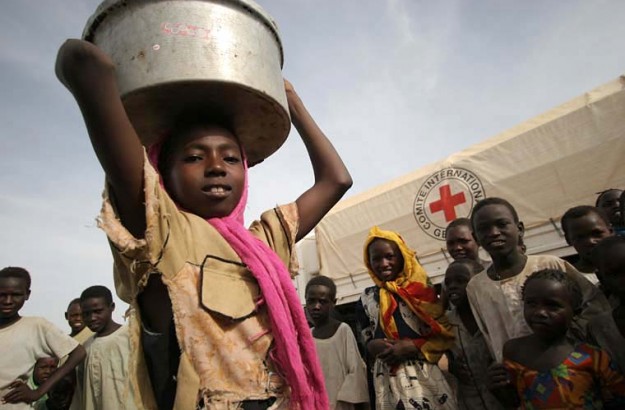
Photo courtesy ICRC
Daniel Stauffacher and Sanjana Hattotuwa from the ICT4Peace Foundation were invited to attend the inaugural Global Partnerships for Humanitarian Impact and Innovation conference held on October 16th 2014 at the IMD Business School in Lausanne, Switzerland.
The mandate of the Global Partnership for Humanitarian Impact and Innovation (GPHI2) is to promote the development of innovative solutions to humanitarian challenges by harnessing the creative capacity of ICRC partners to respond to the needs of conflict victims. The GPHI2 brings together partners from the corporate sector, academia, research institutes, and leading humanitarian actors from the Red Cross Red Crescent Movement and beyond.
The ICT4Peace Foundation has engaged with the ICRC since 2010 around the use of Information and Communications Technologies (ICTs) to strengthen its operations and mandate. Over 2010 and 2011, the Foundation met several times with representatives of the ICRC, under the Chatham House Rule, to discuss how new technologies could help strengthen the ICRC’s situational awareness, communications with disaster affected communities, stakeholders and beneficiaries, visualise complex operations and processes and the verification of information on social media.
In August 2012, the ICT4Peace Foundation, together with a diverse group of human rights and humanitarian actors, was invited by the International Red Cross to comment on the revised draft of their “Professional standards for protection work” from 2009. The standards were developed to ensure that protection work by humanitarian and human rights actors meets commonly agreed minimum professional standards, a baseline to be respected by all.
The ICT4Peace Foundation sent in detailed comments about the substance of the revised standards and suggested re-structuring the chapters from “Information Collection”, to “Data Analysis”, to “Information-Sharing”. Since the standards have so far only been used at the organizational level, the ICT4Peace Foundation stressed the need to make the standards more “user-friendly” for field personnel with an online tutorial and/or a shorter version of the standards. Currently, they are only used at the organizational level.
At the conference in Lausanne, the Foundation took part in the working groups dealing with Engaging with beneficiaries in a hyper-connected world, moderated by journalist Nik Gowing and Defining and testing new partnership paradigms moderated by Daina D. Mazutis, IMD. Daniel Stauffacher in Working Group 2 underscored the importance of an institutional approach and robust policies around information management for the ICRC, mirroring the UN’s Crisis Information Management Strategy which is supported by the ICT4Peace Foundation.
Throughout the day, the Foundation updated over Twitter (with the official hashtag #gphi2) ideas around and responses to key issues, opportunities and challenges discussed at the conference. The tweets dealt with, inter alia, the use of UAVs, the need to address issues related to gender and identity when speaking about connectivity and the use of technology, the need to democratise models of DRR that used super-computing and related to this, the need to support the use of computing centres for humanitarian research, ideas related to the use of mobiles in disasters, the role of telcos in crises and ethical concerns around the use of information. The Foundation’s updates were widely shared and a bundle of all the tweets can be accessed here.
Supporting and engaging with the work and thought-leadership of Peter Maurer, the President of the International Committee of the Red Cross, Yves Daccord, the Director-General of ICRC, Tarun Sarwal (Innovation Adviser, ICRC), Juan Luis Coderque Galligo (Head of Corporate Partnerships) and others, the ICT4Peace Foundation will continue to support the ICRC in its unique mandate to protect human lives and dignity through strategic input and advice on how to more fully grasp the potential of technology in humanitarian aid.
